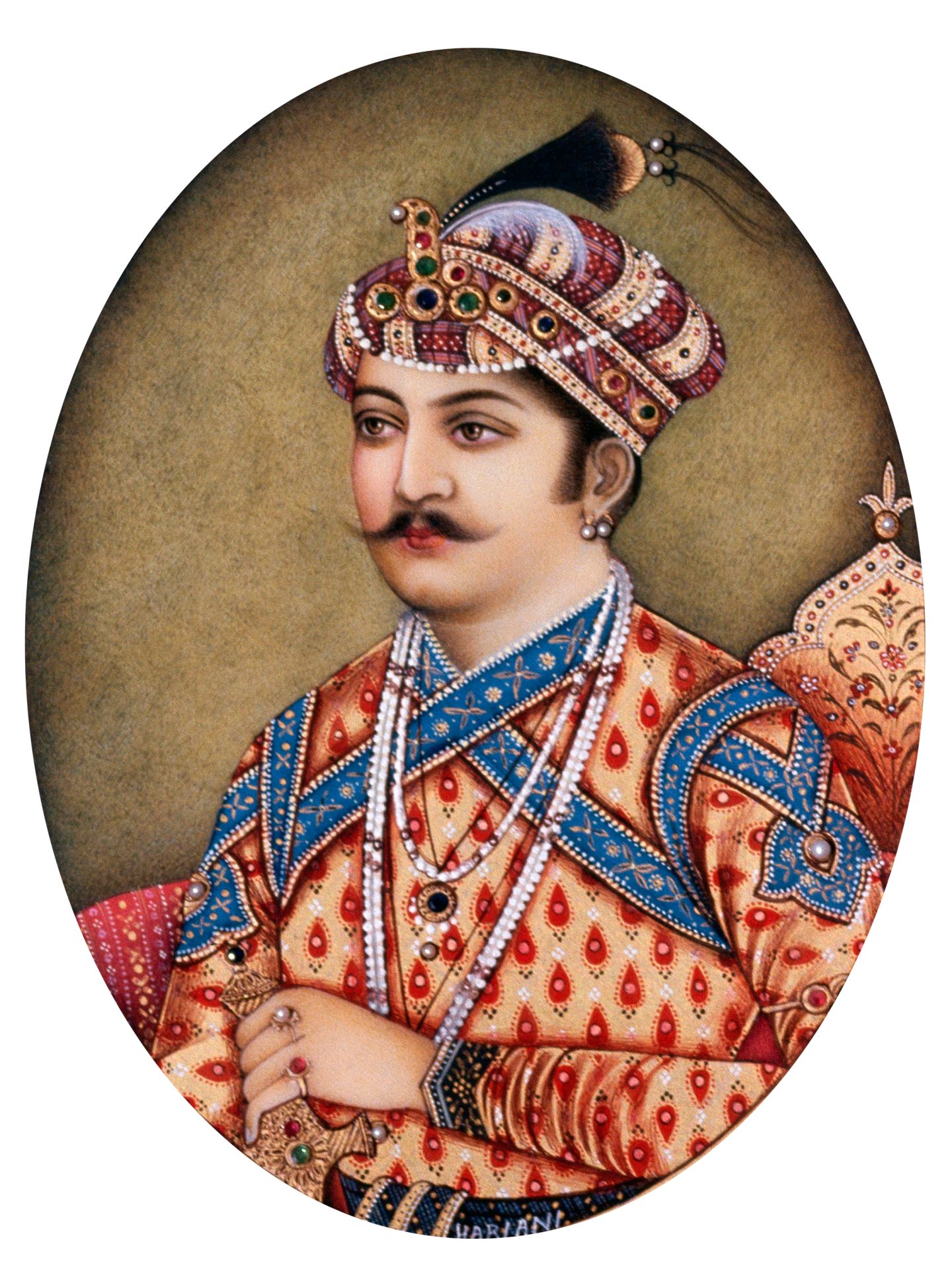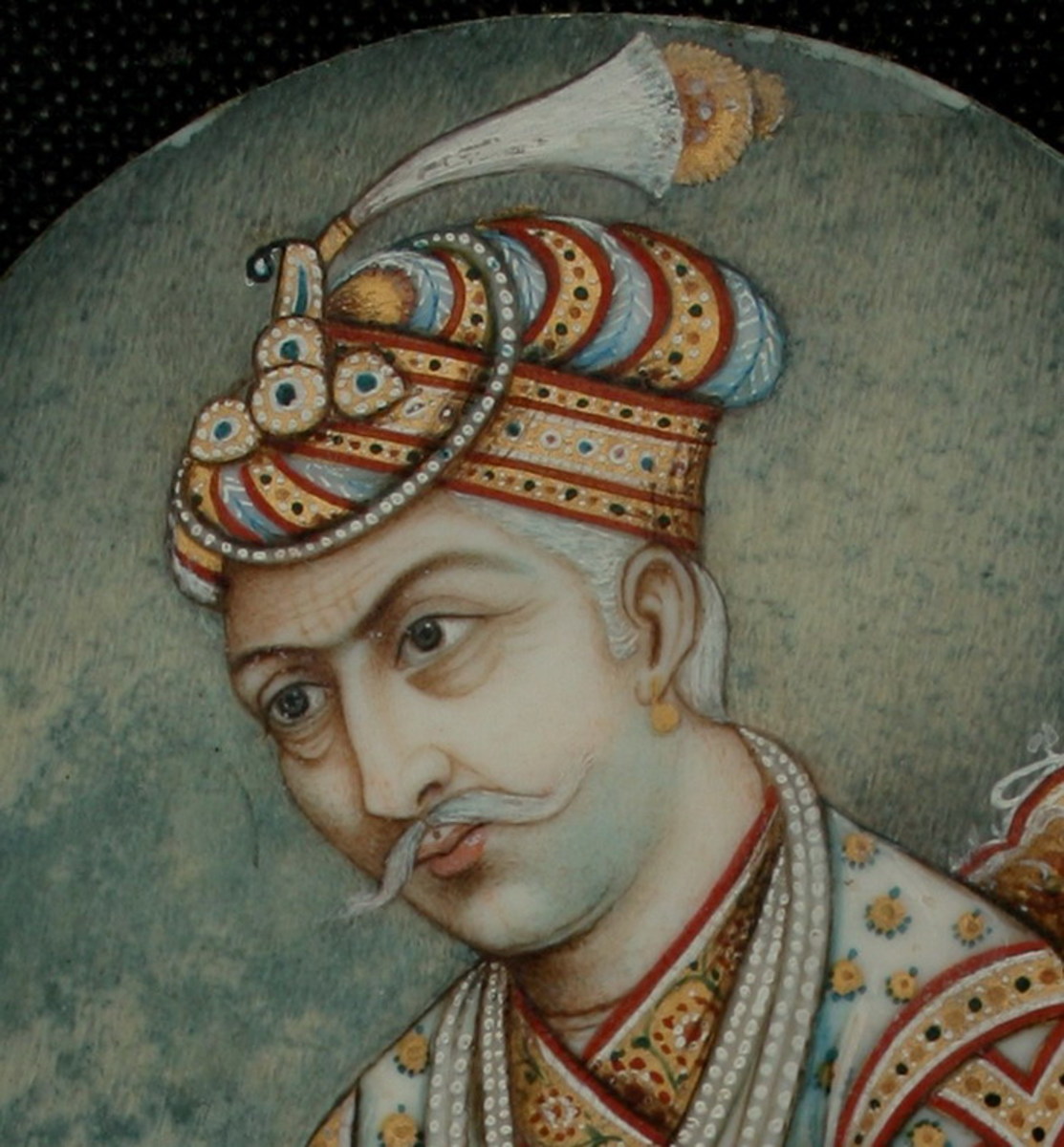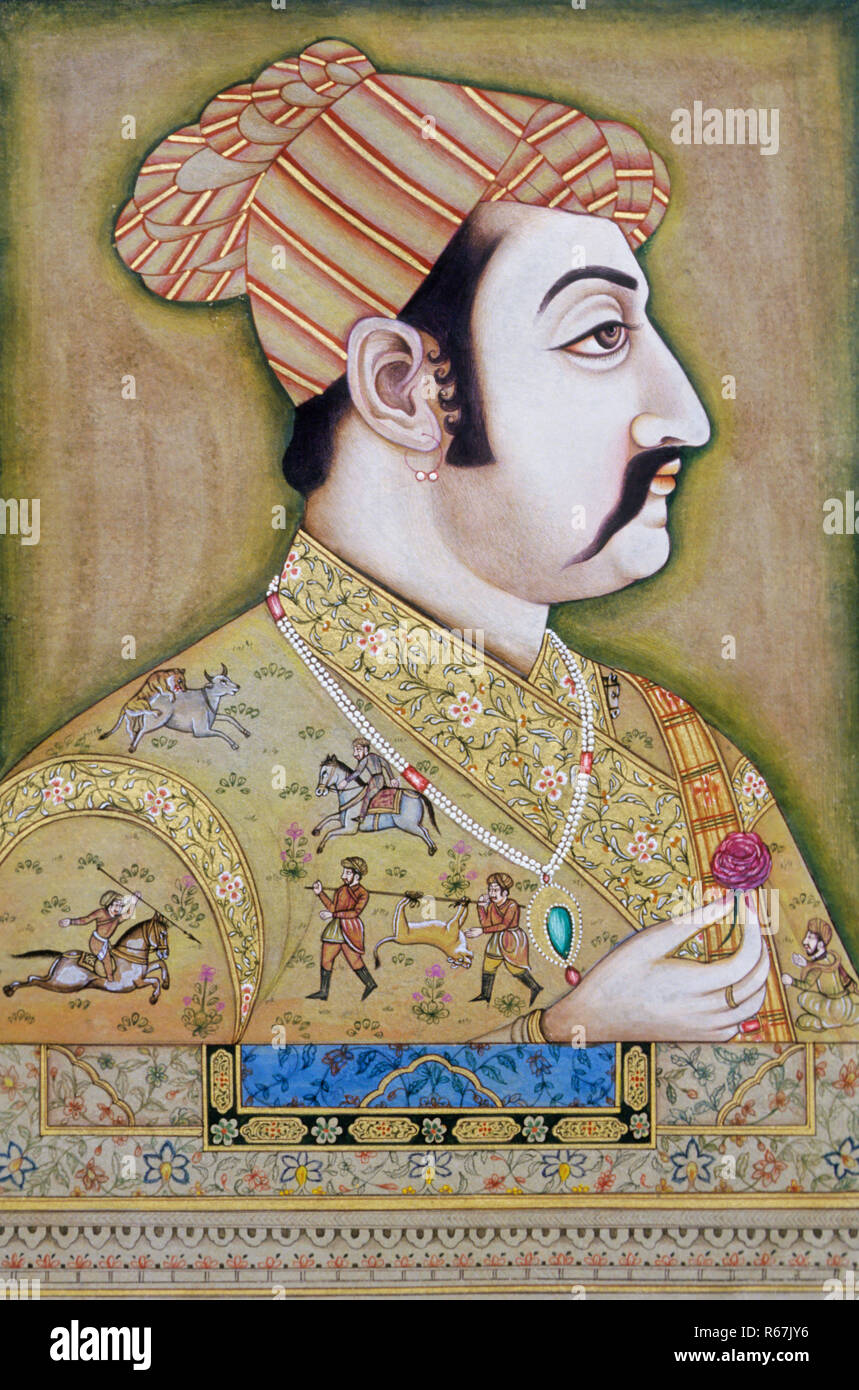Akbar The Great - Mughal Emperor's Story
The story of Akbar, a truly significant figure from history, really begins with his ascent to a position of great power. It’s a tale that, in some respects, shows how someone can move from a particular background to a place of authority and influence. You see, the television series, 'Akbar Rakht Se Takht Ka Safar', which aired back in 2017, actually helped bring this historical journey to life for many viewers. That show, it was a drama that followed the path of Akbar, chronicling his efforts to secure his place on the Mughal throne, which was a very important seat of power at that time.
It was a time when, basically, the political landscape was quite fluid, and getting to the top, then staying there, needed a certain kind of person. Shahbaz Khan, a well-known actor, played the part of Akbar in that particular television show on Colors, giving audiences a visual sense of this important historical character. So, through that portrayal, people could get a glimpse of the challenges and triumphs that shaped this ruler's early years and his eventual rise to a prominent position.
This individual, often remembered as the greatest of the Mughal emperors in India, really left his mark on the history books. His period of leadership, you know, spanned a considerable length of time, starting in the year 1556 and continuing right through to 1605. During those years, he managed to make the Mughal empire much larger, extending its reach and its influence across a very big part of the Indian subcontinent, which is, like, quite an achievement for any ruler.
Table of Contents
- Akbar's Early Life and Ascension
- Who Was Jalaluddin Muhammad Akbar?
- Akbar's Personal Details and Bio Data
- How Did Akbar Expand His Domain?
- What Was Akbar's Approach to Different Beliefs?
- Akbar's Time as a Young Ruler
- The Scope of Akbar's Governance
- A Look at Akbar's Impact
Akbar's Early Life and Ascension
Jalaluddin Muhammad Akbar, someone known to many as Akbar the Great, actually held the position of the third emperor of the Mughal empire. He followed in the footsteps of Babur and Humayun, his predecessors in that significant line of rulers. His story, you know, is one that begins with his birth, and it’s a path that eventually led him to a very powerful seat. He was the son of Nasiruddin Humayun, who was the second Mughal emperor, and his mother was Hamida Banu Begum. So, his lineage was, in a way, quite established within the ruling family, setting the stage for his own time in power.
This particular individual, Akbar the Great, a Muslim emperor in India, really made his mark by building a very large kingdom. He did this, basically, through military actions, which involved, you know, taking control of different areas through force. But, more than just his ability to win battles, he is also remembered for something quite different: his approach to religious differences. He had a way of dealing with various faiths that was, in some respects, quite open and accepting, especially for his time. That policy of religious tolerance is, you know, something he became quite well-known for, showing a different side to his rule beyond just conquest.
It's interesting to consider that Akbar the Great came to the throne when he was, like, quite young. He was only fourteen years old when he took on the responsibility of ruling an empire, which is a very young age to be in such a position. Even at that tender age, he showed a remarkable talent for military matters. His ability to understand and manage military operations was something that would, more or less, define his entire time as ruler. He had, you know, a clear knack for strategy and leading forces, which became evident early on in his reign.
He wasn't entirely on his own during those early years, though. He had the guidance of a very important person, Bairam Khan. Bairam Khan, you see, acted as a kind of protector and advisor to the young emperor, helping him navigate the initial challenges of leadership. So, under Bairam Khan's watchful eye and with his valuable advice, Akbar was able to develop his skills and, you know, begin to assert his authority. This support was, in a way, quite crucial for a ruler who was still learning the ropes of governing such a vast and diverse territory.
Who Was Jalaluddin Muhammad Akbar?
Jalaluddin Muhammad Akbar was, actually, the third sultan of the Mughal empire. He is, by many accounts, considered to be the greatest king in the entire history of the Mughal dynasty. This is, you know, a pretty significant title to hold, suggesting that his impact and his rule were seen as truly exceptional compared to others. His leadership, in some respects, brought a period of great strength and expansion to the empire, making him stand out among the many rulers who came before and after him. So, his name is, like, very much tied to the peak of Mughal power and influence.
His birth happened on October 15, in the year 1542, in a place called Umarkot. This location is, you know, currently situated in what is now the Sindh province of Pakistan. It’s a detail that, basically, roots his beginning in a specific geographical spot, giving us a sense of where his journey started. He lived for a number of years after that, passing away around 1605, in Agra, India. So, his life spanned a significant period of the 16th and early 17th centuries, during which he shaped a considerable part of Indian history.
He is, you know, often referred to as the greatest of the Mughal emperors, and for good reason. His time on the throne really marked a period of considerable change and growth for the empire. He was, actually, the son of the second Mughal emperor, Humayun, which meant he inherited a legacy but also faced the challenge of building upon it. His life, in a way, embodies the transformation of the Mughal empire from a relatively new power to a dominant force across the subcontinent, all under his careful watch.
Akbar's Personal Details and Bio Data
Here, we can look at some personal information about this historical figure, Akbar, to get a clearer picture of his background. It’s a way to, you know, put some key facts into an organized form, giving us a quick overview of his life’s timeline and origins. This kind of detail helps us to, basically, understand the person behind the grand title and the vast empire he oversaw. So, let’s consider some of those important points about him.
| Detail | Information |
|---|---|
| Full Name | Jalaluddin Muhammad Akbar |
| Also Known As | Akbar the Great |
| Birth Date | October 15, 1542 |
| Birth Place | Umarkot (now in Sindh province, Pakistan) |
| Death Date | c. October 25, 1605 |
| Death Place | Agra, India |
| Reign Period | 1556 - 1605 |
| Father's Name | Nasiruddin Humayun (2nd Mughal Emperor) |
| Mother's Name | Hamida Banu Begum |
| Dynasty | Mughal Dynasty |
| Successor | Jahangir |
How Did Akbar Expand His Domain?
Akbar, who was the third and, you know, widely considered the greatest Mughal emperor, really made a significant mark on the map. His time as ruler, which went from 1556 to 1605, saw a very big increase in the size of the Mughal empire. He managed to make it much larger and, basically, also helped to increase its resources. This was achieved, in large part, through military victories. So, his forces were, you know, quite effective in taking control of new territories, adding them to the empire’s holdings.
Beyond just winning battles, he also put in place ways of running things that were, in some respects, very effective. This good governance, you see, played a role in making the empire stronger and wealthier. His rule was, you know, characterized by these military efforts, which were a key part of how he built up his vast domain. It was a combination of skillful fighting and smart administration that really allowed him to grow the empire to such an impressive scale, shaping the region for years to come.
His journey to power, and his efforts to expand the empire, started quite early. He was born on October 15, 1542, in a place called Umarkot, which is in Sind. This was, you know, a time when his father, Humayun, had actually had to leave his own lands. Humayun had, basically, fled after facing some difficulties, so Akbar’s birth happened during a period of uncertainty for the family. Despite these early challenges, Akbar would go on to establish a very powerful and extensive rule, turning a difficult beginning into a period of great achievement for the Mughal empire.
What Was Akbar's Approach to Different Beliefs?
One of the more interesting aspects of Akbar’s time as ruler was, you know, his approach to people with different religious views. He was, actually, quite known for his policy of religious tolerance, which was, like, somewhat unusual for leaders of his era. Instead of forcing everyone to follow one particular faith, he generally allowed people to practice their own beliefs. This meant that, in some respects, he created an environment where various religious communities could coexist within his large empire, which was a pretty significant departure from common practice.
This openness to different faiths was, you know, a defining characteristic of his rule. It helped to, basically, bring a sense of calm and stability to a diverse population, rather than creating divisions based on religious differences. He even, as a matter of fact, engaged in discussions with leaders from various religions, trying to understand their perspectives. So, his rule was not just about military power and expanding territory; it also had this important element of trying to bridge gaps between different belief systems, which is quite remarkable.
Akbar's Time as a Young Ruler
Akbar, you know, took on the responsibility of ruling at a very young age, as we touched on earlier. He was just fourteen years old when he ascended to the throne, which is, like, pretty astonishing when you think about the weight of such a position. Even at that early point in his life, he showed a truly remarkable skill for military matters. This talent, you see, for strategy and leading armies, it would, in a way, become a defining feature of his entire period of governance. He demonstrated, basically, a natural ability to command and plan military actions, which was crucial for his early successes.
He wasn't, however, left to figure everything out on his own right away. He had the guidance of a very important figure, Bairam Khan. Bairam Khan, you know, played a vital role in helping the young Akbar navigate the early, somewhat challenging, years of his rule. He acted as a kind of mentor and guardian, providing advice and support. So, under the careful direction of Bairam Khan, Akbar was able to, basically, learn the ropes of leadership and begin to consolidate his power, setting a strong foundation for the long and impactful reign that was to come.
The Scope of Akbar's Governance
The time Akbar spent as the leader, from 1556 to 1605, was, you know, marked by a very big expansion of the Mughal empire. He didn't just maintain what was already there; he actually made it much bigger. This growth, you see, wasn't just about taking more land; it also helped to increase the empire's resources and wealth. His approach to ruling, in some respects, combined successful military actions with smart ways of managing the empire's affairs. So, it was a blend of strong leadership in battle and effective administration that really defined his period in power.
His governance, basically, extended the Mughal authority over a very large portion of the Indian subcontinent. This meant that, in a way, he brought many different regions and peoples under one central rule. His methods of running the empire, you know, were designed to not only conquer new areas but also to make sure they were well-integrated and contributed to the overall strength of the empire. This comprehensive approach to leadership is, like, a key reason why his reign is remembered as such a significant time in Mughal history.
A Look at Akbar's Impact
Akbar, you know, is truly considered one of the most important figures in the history of the Mughal empire. He was the third emperor in that line of rulers, and his impact was, actually, quite profound. His time as the leader, from 1556 to 1605, saw the empire grow in size and influence to an extent that was, in some respects, unprecedented. He managed to make the Mughal power spread across most of the Indian subcontinent, which is, like, a very big area to bring under one rule. This expansion was, basically, a hallmark of his long and successful reign.
Beyond just military achievements, his rule was also, you know, notable for other reasons. He put in place systems of administration that helped to manage the vast empire effectively, contributing to its wealth and stability. So, it wasn't just about winning battles; it was also about creating a lasting structure for governance. His life, his period of leadership, his administrative decisions, and his many accomplishments are, in a way, all part of what makes his story so compelling and important for understanding the history of that region.
His birth, on October 15, 1542, in Umarkot, marked the beginning of a life that would, you know, leave an indelible mark on history. He passed away around October 25, 1605, in Agra, India, after a reign that had reshaped the political and cultural landscape. He was, actually, the son of the second Mughal emperor, Humayun, meaning he inherited a challenging situation but transformed it into a period of great prosperity and expansion. His story, you know, is one of a ruler who not only conquered but also built, leaving behind a legacy that is still studied and admired today.

DK Find Out! | Fun Facts for Kids on Animals, Earth, History and more!

Akbar The Great Mughal Emperor History

Incredible Compilation of 999+ Akbar Images in Full 4K Quality